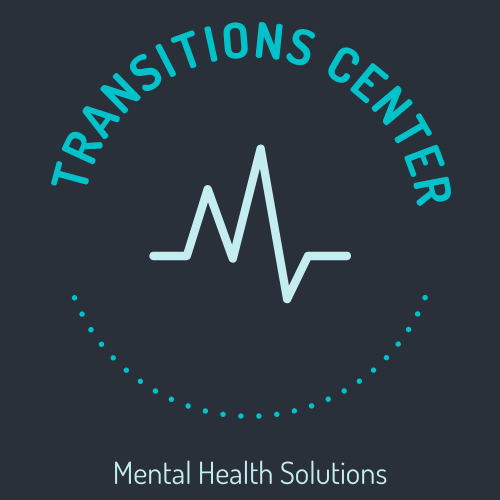
Mental health disorders come in many different shapes and sizes. Some are well known, such as depression or bipolar disorder, while others are less understood. In this blog post, we will explore some of the most common types of mental health disorders. We will also discuss the symptoms and treatment options for each one. If you think you might be suffering from a mental health disorder, please seek professional help. There is no shame in getting help!
Types of Mental Health Disorders
Mental health disorders come in all shapes and sizes. Some are well known, while others are more obscure. Here is a list of some of the most common mental health disorders:
Anxiety Disorders
Anxiety disorders are the most common type of mental disorder. They involve excessive worry or fear that can interfere with daily activities. Types of anxiety disorders include generalized anxiety disorder, panic disorder, agoraphobia, social anxiety disorder, and specific phobias.
Behavioral and emotional disorders in children
Three of the most common behavioral disorders in children are oppositional defiant disorder (ODD), conduct disorder (CD), and attention deficit hyperactivity disorder (ADHD). Some methods of treatment for these mental health problems can involve therapy, education, and medication.
Bipolar affective disorder
The bipolar affective disorder also called mood disorder or manic depression is a mental illness characterized by episodes of elation and depression. The person may or may not experience psychotic symptoms. While the exact cause is unknown, experts have found that it has something to do with genetics and environmental stressors can trigger an episode.
Depression
Depression is a mood disorder that causes persistent feelings of sadness and loss of interest. It can interfere with your ability to work, sleep, eat, and enjoy hobbies. Types of depression include major depressive disorder, persistent depressive disorder (dysthymia), and bipolar disorder.
Dissociation and dissociative disorders
A person disconnects from their ideas, feelings, memories, or sense of identity when they dissociate, which is a mental process. Dissociative amnesia, dissociative fugue, depersonalization disorder, and dissociative identity disorder are examples of dissociative disorders.
Eating Disorders
Eating disorders involve abnormal eating habits that can lead to serious health problems. Types of eating disorders include anorexia nervosa, bulimia nervosa, and binge-eating disorder.
Neurodevelopmental disorders
Behavioral and cognitive disorders that develop during childhood and are characterized by significant difficulties in the acquisition and execution of specific intellectual, motor, language, or social activities are known as neurodevelopmental disorders. Intellectual development disorders, autism spectrum disorder, and attention deficit hyperactivity disorder (ADHD) are examples of neurodevelopmental diseases.
Obsessive-Compulsive Disorder (OCD)
OCD is a type of anxiety disorder that causes repeated, unwanted thoughts or urges (obsessions) and the need to perform certain rituals (compulsions).
Panic disorder
Panic disorder is characterized by experiencing two or more panic attacks and living in constant fear of having another. As a result, some people with this condition might change their everyday activities to avoid triggering an attack. A panic attack can be defined as feeling suddenly and intensely afraid, along with physical symptoms like rapid heartbeat, shaking, chest pain, nausea, tightness in the throat, dizziness, and a sense of detachment from reality.
Although treatments vary, they may include therapy, medication, mindfulness, and meditation practice, as well as reducing alcohol and caffeine intake.
Paranoia
Paranoia is the unfounded and persistent belief that people are intending to harm you. Paranoia may be a symptom of conditions such as paranoid personality disorder, delusional (paranoid) disorder, or schizophrenia. Treatment options for paranoia include medication and psychological support.
Posttraumatic Stress Disorder (PTSD)
PTSD is a type of anxiety disorder that can occur after you experience or witness a traumatic event. Symptoms may include flashbacks, nightmares, and severe anxiety.
Psychosis
The symptoms of psychosis include delusions, hallucinations, and muddled thinking. Numerous mental conditions, including schizophrenia, mood disorders, and drug-induced psychosis, can cause psychosis. Psychotic symptoms can be reduced or even completely eliminated with the help of medication and counseling.
Schizophrenia
Schizophrenia is a mental disorder that causes delusions, hallucinations, and other abnormal thinking and behavior.
Who is Susceptible to Getting a Mental Illness?
Mental illness can affect anyone, regardless of age, race, religion, or socioeconomic status. In fact, mental illness is one of the most common health conditions in the United States. According to the National Alliance on Mental Illness (NAMI), about one in five adults in the U.S. experiences a mental illness in any given year.
Mental illnesses are often thought of as rare or unimportant, but they’re actually quite common and can have a serious impact on a person’s life. If you or someone you know is dealing with a mental illness, it’s important to seek help from a mental health professional. Early diagnosis and treatment can make a big difference in managing symptoms and improving quality of life.
Conclusion:
A mental illness is a catch-all term that encompasses a range of ailments characterized by symptoms that impact a person’s thinking, perceptions, emotions, or actions. It might be hard for someone to manage their job, relationships, and other responsibilities due to mental illness. The link between stress and mental sickness is complicated, but it is understood that stress can exacerbate an episode of mental disease. Most people can control their mental illnesses with medicine (counseling or both) or positive thinking.
About the Authors
Transitions Center for Natural Mental Health Treatments for a variety of physical and mental dependency issues and conditions. Substance use disorders are difficult to understand for many people. The physical and mental aspects of any substance disorder are complicated and unique to the individual suffering. The differences between physical and psychological dependency vary but have some similarities. Transitions Center for Natural Mental Health Treatments help the public know what to look for as a means of helping a loved one cope with the challenges of mental health disorders.
Happily brought to you with the assistance of Mary Jane’s CBD Dispensary, the newest CBD nutrition online. If you’re looking for a hemp product to help with your health or mental condition, Mary Jane’s CBD Dispensary is the perfect place. They offer customers an alternative to pharmaceutical drugs and want you to feel better without having to take harmful meds. Their team members are extremely passionate about what they do at MJD and hope that by creating this blog post, they can share our passion with others too. Get in touch if you would like more information on any of their products!
